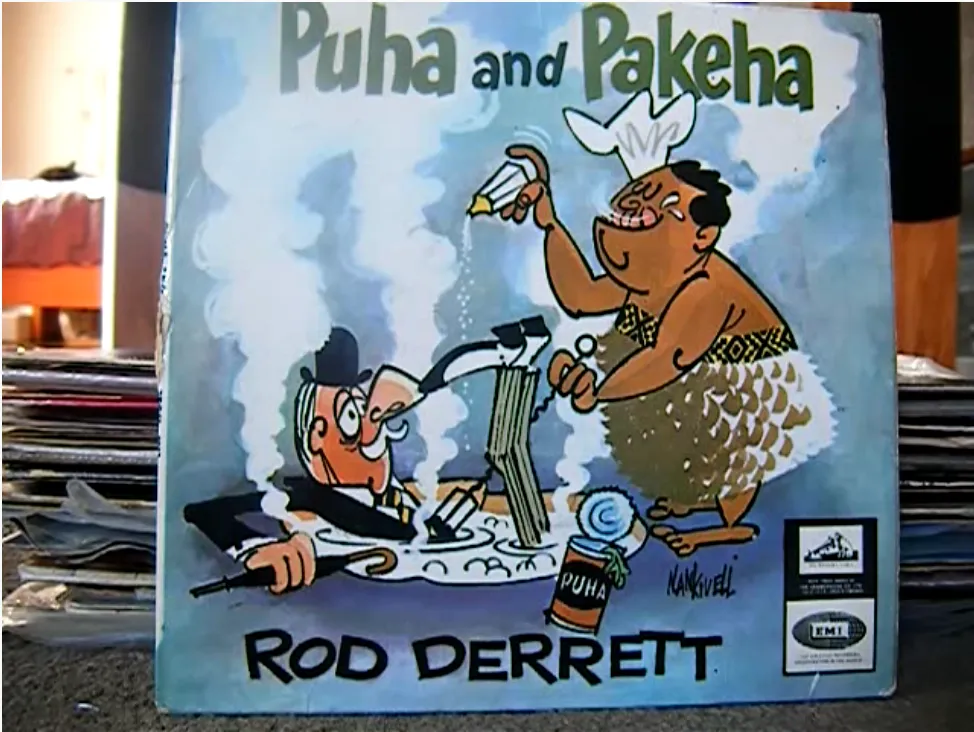Table of Contents
The connection between Dennis Waterman and Rauparaha may not be obvious at first but bear with me.
It was forty years ago Waterman and co-star George Cole from the wildly popular TV series ‘Minder’ released their Christmas song “What are we gonna get for ‘er indoors?” exploiting the success of the series and the cockney characters they played. The song’s ‘verses’ featured exchanges between the characters Arfer ‘n Terry and had Terry repeating the motif ‘You make me larf, you do’. It was a hit, as was the line – borrowed into many Kiwi conversations and quips of the day, complete with a Cockney accent.
A passenger (a relatively rare species currently) on the Interislander and member of the swinging offenderatti set felt it necessary to feign umbrage upon viewing historical ‘blurbs’ incorporated into a display map aboard the vessel Aratere, sharing her disgust with the world and press, especially at the use of the words ‘cannibal’ and ‘tomahawk’ in describing some notable events in relation to the Marlborough Sounds. The former describing the feasting at the fall of Kaiapoi Pa and again in the unfortunate demise of crew from Cook’s second voyage, the latter in the despatch of the surrendered folk at what became known as the ‘Wairau affray’.

Ms Miffed, in declaring “Once we know better, we do better” decried “We know about kaitangata, that there was eating of other people, but we don’t talk about cannibalism. It makes it really primitive and removed from context. Even the word tomahawk. We are not in America.” Poor thing: if only she knew better she might do better.
The word tomahawk and indeed the prototypical devices were borrowed into the British realm from the Algonquian people of north-eastern America from the original ‘tamahaak’ and adapted to purposes as much useful as lethal, and popular. Even far-off Maori saw their merits:
But the musket was not the only weapon which the natives obtained from the European traders. The bayonet and the tomahawk, the former of which was fixed to a long handle, began to replace in their fights the wooden spear and battle-axe, and naturally added greatly to the offensive power of those who possessed them in any numbers.
Rangihaeata, nephew of Rauparaha, was particularly fond of his and, despite eschewing all things European except weapons, was ‘rarely seen without it’.
It was that device with which Rangihaeata single-handedly, one by one, “brained” the nine unarmed individuals at Wairau after allegedly ‘finishing off’ seven of the injured along the way. Very lethal, in some hands, the tamahaak.
In the context of cannibal and the Kai-Tahu (the dialect of the Southern Islanders preferring ‘kai’ as opposed to the Northerner’s ‘ngai’ or ‘ngati’ for groups of descendants) at the stronghold of Kaiapoi, the less said the better perhaps, except that it was almost industrial in scale. In matters warfare-wise Rauparaha was equally brilliant and devious but in effecting Kai-Tahu anger towards his war-party, his taua, in provoking them, he was especially depraved. On hearing the weeks-old news of the death of the grandmother of his enemy Tamaiharanui of Kai-Tahu he had her remains disinterred and roasted for consumption by his own party. That was not very nice.
One can only wonder at what Rauparaha; brilliant, genius, entrepreneurial, dangerous, duplicitous Rauparaha that gave his deeds and name to so many Wellington regional landmarks and to all of us the ‘All Black haka’, might have said to the Ms Miffeds of the world who, through rainbow-tinted glasses close to two hundred years later, refuse to believe the peoples populating these islands could ever be anything less than Rousseau’s romantic descriptor of ‘noble’. Perhaps the great Toa chief may have mouthed the equivalent of, “You make me larf, you do.”









